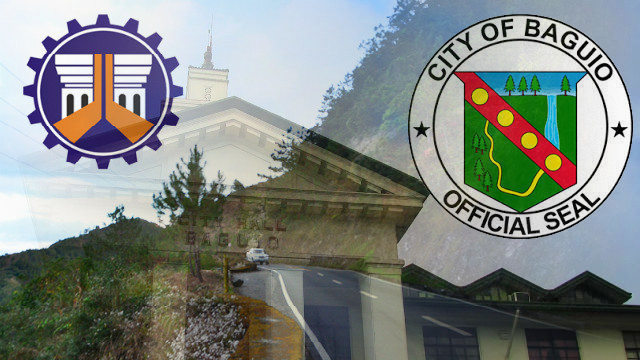BAGUIO CITY – The Camp John Hay Development Corporation (CJHDevCo) accused the State-owned Bases Conversion and Development Authority (BCDA) of bullying for taking its wrath in in- sighting third parties into filing cases against them after having lost the arbitration case with the Makati-based Philippine Dispute Resolution Center, Inc. (PDRCI) over the long standing dispute on the lease of the former American military base.
Robert John Sobrepeña, CJHDevCo chairman, said instead of supporting and promoting business and development for the citizens, BCDA’s helvent act of using sub-locators and sub-lessees of the economic zone has already become destructive and counterproductive which is now hurting Baguio City being the host of the former American rest and recreation area where local residents are supposed to benefit from the employment opportunities to be created and the overall impact of the development to the growing local economy.
He said the instability of contracts and agreements being entered into by government through the BCDA makes the primary purpose of the public private partnership (PPP) doubtful in the sense that there are no bad projects but what are existent are bad government proponents and bad investors.
In the case of John Hay, Sobrepeña claimed when CJHDevCo inherited the project from Manuela, they were not fully informed that there was already a pending case before the Supreme Court (SC) that sought to invalidate the lease agreement until it resulted to the forfeiture of the corporation’s economic zone benefits in 2003.
“BCDA was not able to deliver its commitments in the initial years of the lease agreement, specifically the delayed issuance of the environmental compliance certificate (ECC) for our projects, the full delivery of the developable areas among others. We passed through four presidents and we were able to settle our differences with the three administrations, except for this administration,” Sobrepeña stressed.
The CJHDevCo official pointed out that what was good for the Ramos, Estrada and Arroyo administrations, where they all encountered serious problems, was that they sat down with them to talk about the issues and concerns and devised solutions for the greater interest of the people but the BCDA administration now has become destructive and counterproductive which is now causing confusion inside the facility.
He challenged BCDA to accept the decision of the arbitral tribunal to pay them the amount of P1.42 billion representing damages and accumulated lease rentals it paid to the government since 1996 and they will turn over the property to the government as mandated under the ordering order to allow John Hay to serve its real purpose as an engine of growth in the city.
Sobrepeña asserted sub-locators and sub-lessees are not parties to the arbitration case that is why they are not covered by the outcome of the case considering that BCDA consented to the Leasehold Warranty Deeds (LWDs) it had been issuing to interested locators over the past several years.
He disclosed CJHDevCo will leave the property only after the issuance of the required judicial confirmation of the arbitral decision and the subsequent writ of execution after BCDA shall have paid to them the arbitral award of P1.42 billion.
According to him, prolonging the case would become counterproductive to the supposed purpose of the economic zone which is to enhance the overall growth and development of the city, thus, BCDA must already settle its obligation under the arbitral decision for them to subsequently turnover the property to the government.
Alfredo Yñiguez, CJHDevCo executive vice president, said a number of foreign and local investors who were previously interested to establish various types of businesses in the economic zone backed out after learning about the brewing conflict between the government and the developer and the failure of BCDA to issue the necessary permits to build and renovate existing facilities.
He disclosed a Chinese business process outsourcing (BPO) company that was supposed to hire hundreds of local teachers for their operations backed out of their deal after the John Hay Management Corporation (JHMC), a BCDA subsidiary, refused to issue the needed permits for them to put up their own communication lines within the area.
He added some companies also signified their intentions to develop some portions of the developable area for profitable businesses but BCDA refused to issue them permits contrary to their commitment in the 2008 restructured agreement that they will issue permits to the developer within a 30-day period.
He called on BCDA to immediately settle their obligations with the developer so that they can already turnover the property to the government to allow John Hay to move on in the hands of future developers.
By Dexter A. See













